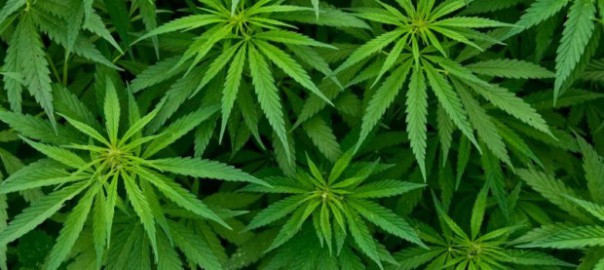The long term solution to both the Syrian refugee crisis and illegal immigration is the decriminalization of all drugs. Yes, I’ll say it again: The long term solution to both the Syrian refugee crisis and illegal immigration is the decriminalization of all drugs.
But first, some clarification. I am not one of those who advocates for the free and open use of drugs in our society. Quite the contrary. The abuse of drugs is a real problem that needs to be effectively addressed and resolved positively. And, if we ever hope to restore America to its constitutional roots of liberty, the last thing we need is a bunch of drug induced zombies sitting on the couch staring at their eyelids.
Decriminalization will not be an overnight cure. It is a long term solution, reaching to the root of the problem. Not only will decriminalization prevent future refugee and immigration crises, but many other benefits to our society will also accrue.
Many of those who are addressing these two issues are focused only on the immediate problem and seek to apply what will likely be ineffective solutions. Most proposals are only an attempt to put a band-aid on a hemorrhage. Like modern medicine that primarily applies drugs to symptoms, these proposals fail to understand and resolve the root cause of the malady. This band-aid approach tends to create only more symptoms and adverse reactions.
Will refusing Syrian refugees’ entry into America solve the problem? No. They are leaving Syria by the thousands because their homes, families and country have been bombed into oblivion by a U.S. proxy war. They simply want to live, and they will die, as many of them have, if they stay in their own country.
Will building a wall on our southern border keep illegal aliens out? No. People are a creative lot, and will always find a way over, under, through or around a barrier, given sufficient motivation. And another war, the “War on Drugs,” is going on in Mexico. For several reasons, the Mexican people are motivated to make a better life for themselves and their families.
Few people know about one of the original causes of illegal immigration from Mexico: U.S. farm subsidies. For decades, the U.S. has intervened in agricultural markets, subsidizing farmers to produce and sometimes over produce farm crops like corn. These surpluses have been shipped by the train load to Mexico where they flooded the market there, dropping prices and devastating the livelihoods of rural Mexican farmers. Moving to Mexican cities to find work and finding little, many Mexicans have come north to live, an unintended consequence of the seeming benevolence of our subsidized excess productivity.
But that is nothing compared to war. The Mexican people are faced with a war. They are tortured, raped and gruesomely murdered in a contest for profit and power between illegal drug cartels and the U.S. and Mexican enforcers of drug laws. No one will ever win such a war. No one ever has.
So how will decriminalizing all drugs solve these two problems? I n a word, profit. It is the very nature of desirable contraband to command a price well in excess of its actual value. It is the insane profits obtainable from such contraband and those who profit from it, who are at the root of the problem.
I once read an article on the factual realities of decriminalizing cocaine. Unfortunately, I don’t recall either the author’s name or the magazine that published it, but the numbers the author used paint a clear picture. The author stated that a kilo of illegal cocaine costs $10,000 in this country and the same kilo can be purchased in Columbia where it is produced for $50. The author further explained that if cocaine were decriminalized, you could order it on the Internet from a supplier in Columbia and FEDEX would ship it to your doorstep for an additional $15. According to that author, you could own a kilo of decriminalized cocaine for $65, not $10,000. That means the contraband inflation value of the cocaine is $9,935. That $9,935 is a huge profit margin, obtainable by anyone willing to deal in illegal drugs. People who gravitate to that sort of crime, often are willing to engage in other serious crimes. And they do, quite profitably. Decriminalization would make that insane profit margin and the other crimes it engenders evaporate.
Let’s look at a more sedate drug, Marijuana. At your local health food store, in the bulk herb section, you will find a variety of dried herbs for between $5 and $40 a pound. Most of these come from knee-high or smaller plants. The more expensive ones reflect a sparse productivity or a multi-year harvest cycle.
Marijuana typically is about 6 feet tall, with many branches which then branch again and again. On the end of each branch of the female cannabis plant is the “bud” which is desired by drug users. The typical plant can produce from a few ounces, to over a pound of the dried “bud.” Contraband prices are approximately $200 per ounce. That’s per ounce, not the price per pound of the dried herbs in the health food store. Wholesale contraband cannabis prices can easily be several thousand dollars a pound. That gives a picture of the contraband inflated price of this tall, prolific plant.
The several states that have “legalized” marijuana, have seen a small price reduction from the former Black Market price, but legalization is not decriminalization. It is “legal” only when the grower, distributor and retailer are licensed, regulated and taxed, creating a highly profitable state monopoly on the otherwise still contraband product.
What would decriminalization do? It would activate free market principles and the price would reflect the cost of production and distribution plus real world profit in an open, competitive market. Without the insane profit margin as a contraband substance, interest in production would substantially diminish. The price of Marijuana would likely stabilize somewhere near the dried herbs in your local health food store. You may even find it there someday.
So how could this possibly relate to Syria and the illegal immigration problem on the southern border? Let’s check some history and our current world condition.
Do you remember the “Iran Contra Affair” during the Reagan Administration? The CIA and its partners were caught in a triangular drugs, guns and money trading operation which fueled the Central American wars of that era and funded the covert U.S. operations against Iran. All made possible by the insane profit margins of illegal drugs.
Was this an isolated incident? Did they learn their lesson and quit? I personally have spoken with a former military pilot who claimed to have flown quite a lot heroin and opiates into our country during the Vietnam era. Many other “Air America” type operations have been testified to by the people who were part of them.
Why are we in Afghanistan? Because 19 hijackers attacked us on September 11th? 17 of them were Saudi citizens. Why are we still in Afghanistan 15 years later? To restore democracy? 70 per cent of the world’s opium supply is grown there and the Taliban were going to shut down production. All wars are bankers wars and the illegal opiate market represents a street value of approximately a half trillion dollars. Our nation is in debt to the bankers and our military fights for the bankers’ interests. A half trillion dollars is a lot of dirty cash to wash through the banking system.
If you read the U.S. Constitution and the Tenth Amendment you won’t find anything that sanctions the CIA. Or most of the federal agencies, for that matter. Funded in part by congressional appropriations, the CIA also operates on a black budget. Drugs and gun running figure prominently in that budget.
Former CIA director and U.S. President, George H. W. Bush declared war on drugs during his presidency. Was it really a war on drugs or a war on the cartels that were his “former” agency’s competition? Was it a war to stop drugs or just to keep the profits up and the supply managed favorably for the shadows of government?
If the smoke and mirrors ever clear on the Benghazi Affair, we will likely find illegal gun running at the core of the issue. Guns and supplies going to the “rebels” the U.S. has hired in the proxy war against Syria. Guns purchased with illegal drug money in a triangular operation similar to the “Iran Contra Affair.”
And who are these “rebels?” ISIS. Those terrorists “we” can’t seem to stop with the greatest military in the world. Those terrorists that drive American made Toyota pick-ups and have a lot of U.S. munitions at their disposal. The terrorists that were selling crude oil at half price to our ally, Turkey. Those terrorists that the Russians decimated in a few weeks. The terrorists that Secretary of State John Kerry sought to exclude from the Cease Fire in Syria because they weren’t “moderate” terrorists. “Our” terrorists that could then continue the U.S. proxy war against Syria.
And what is the result of all this? Hundreds of thousands of Syrians dead and many more leaving their bombed out homes for anywhere that will have them. Why? They are caught in the crossfire between the Syrian defenders, their Russian ally, and the U.S. proxy war “rebels.”
Illegal drugs and their insane profit margin are the fuel that powers these wars. No fuel, no war, no refugees.
Of course, decriminalization won’t solve the immediate refugee crisis. But there is a short term solution: Don’t resettle the refugees in communities throughout America. Resettle them in Langley Virginia, near CIA headquarters. Let those who created the problem face the result of their proxy war every time they show up for work.
What will decriminalization do for the illegal immigration problem? To the extent that the War on Drugs is the motivator for illegal immigration, decriminalization will end that war. Current trends suggest the tide is turning. With just a few states “legalizing” marijuana, the Washington Post reports that cannabis confiscations at the southern border are less than half what they were in 2009. An Anti-Media article legalizing-weed-done-1-trillion-dollars-40-year-war-couldn’t suggests the trend will continue. This is the result just from the partial “legalization” of one drug. Decriminalization of all drugs ends the drug war, ends the insane profit margin, and ends the murder, rape and torture Mexicans face with the drug cartels.
But won’t decriminalization increase the drug problem? Several European nations decided to decriminalize even the hard drugs and treat the drug problem as a health issue, with treatment instead of incarceration. Some would think all the junkies of Europe would flock to the new drug havens, but the result in Portugal was to reduce drug abuse by half. Switzerland and Ireland saw similar results.
Can we follow the successful examples of other countries? Should we continue to implement a drug policy that has failed for decades? The U.S. has spent over a trillion dollars on the War on Drugs and continues to spend over 50 billion a year on that never ending war. The insane profits from the drug war fund the shadows of government and their proxy wars which create refugees and illegal immigrants. The long term solution is the decriminalization of all drugs!



